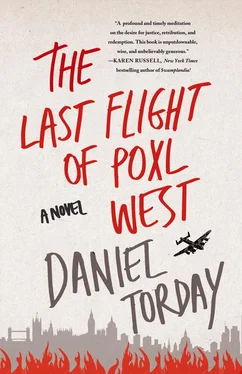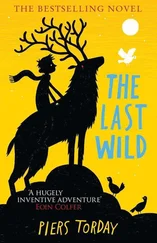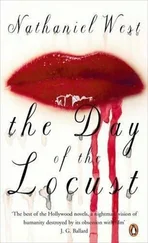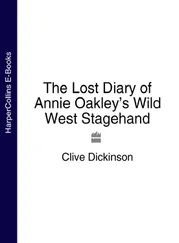“So after Grandpa died, when Poxl asked if he could take you into town to see plays, to go to the museum, to go out and listen to him at Cabot’s even, of course we always said yes. Like I said, he and his wife had never had kids. I think it fulfilled something for him, spending that time with you. I’m sure there was something in those outings that let him talk about one long, momentous period of his life that had previously been too hard to remember. Lots of those from his generation didn’t want to talk about it, but now Poxl did. We felt it had to be a good thing. I’m sure writing it down in that memoir, having it acknowledged — his love, his experiences, no matter what he fabricated — must have freed something in him.”
“Well, why the shit didn’t he ever tell me that?” I said. When I started talking I was sure I would feel the anger of its having been kept from me. But there wasn’t enough air in my lungs. I felt light as a cirrus cloud, jittery. The question came out thin — so lacking in conviction, my father could hear it.
“We did, Eli,” my father said. “I think you just didn’t hear it.”
“He could have talked to me about it.”
“Could he have? Talked to a fifteen-year-old about the pain of losing his wife after years of marriage, a memory that stayed so present it was as if it wasn’t past? That’s different from telling war stories. Maybe war stories are easier to tell than simple tragedies. Or harder. I don’t know. I guess in the end it was easier for your uncle to tell the stories from back then — Nazis killed his kin and so he tried to kill them back. That might not even have been quite how it was, but he could remember it that way. Why would he have told you about a car up and hitting his wife, years later? That’s a different kind of story altogether. It would take a whole other novel to tell it.”
I started to say that he was wrong. Or that he was right. Or that as I thought about it now, I wished that my uncle Poxl would have loved me enough or trusted me enough to have confided that pain. I could quote three dozen historiographers and theorists to him now, but not one of them would have helped me to have something to say that evening. It would take years of trying to process what Poxl West meant to me in those days and even after all those years; the best I could hope for was a glimpse of the truth of a feeling I’d had when I was a teenager. Is that a truth best gazed at up close, pretending the tectonic weight of years hadn’t passed deep below the surface? Or from the other end of a telescope, one big world made round as a shooting marble by distance, and a trick of light? Neither of those have made it knowable to me.
Not one thing I could have said then would have been right.
I know that now.
I was a teenager back then, and Poxl West had been a red old Ashkenazi Jew in his dotage. What he needed from me he needed from me. I was lucky he needed anything from me at all. Luckier than I could have expressed. Luckier than I can conceive even now, no matter what percentage of it was fact. Maybe that’s the one thing I do know of that time: Whatever pain or confusion it brought then and brings still, I wouldn’t give back a minute of the time I’d spent with the hero, the writer, my uncle Poxl West.
Finally I picked up the chair and took it down to the U-Haul. We lifted and lugged. We didn’t say anything more about Poxl.
All through the evening I kept eyeing his library. I had forbearance of some kind, by then twenty and not a kid watching a Super Bowl, and not yet the man I am now. As I say, my uncle Poxl’s stories stuck with me over the years, and though I flirted with a degree in art history, I don’t have that kind of visual memory — not like Poxl — and the images didn’t take hold. History did. I took my Ph.D. in nineteenth-century European history. I’ve always had a hard time answering why that period was the one I settled on. Maybe I’ve known all along: There’s a comfort in living with the period before all the tumult Poxl lived through. Eighteen forty-eight wasn’t 1944. It was a period of wars and revolutions and upheaval, but distant enough to be history and stay history. It had no living survivors.
When we finally did come to dealing with Uncle Poxl’s library later that evening, even after all I’d just learned, my palms prickled — desirous, intemperate. Only the day before I had seen Jules and Willie, whose father had failed as a novelist before scraping by as a book reviewer, but who had filled his books with bills. What might Poxl West’s books hold? What lessons had his neighbor taught my uncle all those years before, my uncle Poxl, whose brief fame had fled and left him in penury, an old man on a bench staring at Schieles and confessing his most public trespasses to a teenage kid while still hiding his sharpest pains?
I pulled his old Shakespeare, the very copy Mrs. Goldring must have left for him in that cave east of London, off the shelf. It was travel-worn and smelled of mildew. Its leaves fell against one another with a whish. They flapped, heavy with possibility.
Nothing.
I turned the book to inspect it further, All’s Well That Ends Well to The Winter’s Tale only to find so many notes covering those pages, it was rendered nearly illegible. I remembered the notes Poxl had written about, notes Mrs. Goldring had made in that book decades ago, and a knot drew up in my throat as I turned to King Lear. Here I was about to find evidence of a lie or a truth on the pages in his book, a verifiable, incontrovertible truth. Or lie. I turned to Act 1, and on the second page, when Cordelia has just so unwisely shunned her father’s love, when she has publicly shamed him for refusing to say she loved him most, there it was. Next to the Lear lines, in a wavering pen but clear and distinct:
“Pocksall.”
The airy cold breath of a ghost seemed to huff against my neck. My head felt light, and then my father said, “Eli, come give me a hand here,” and I had no choice but to put the book down. Before I left that night, I put it in my backpack. That book would be mine.
We packed twenty-three boxes with Poxl’s books that evening. I put eighteen copies of his book into a single box and with a fat magic marker labeled it:
“Nonfiction.”
Before taping the box up, I turned to the back of the last copy I encountered. My name was still there, typed in black ink. Just above it was a paragraph I’d never paid much attention to before — I’m sure I must have read it, put the words through my head — how could I not have? — but I’d never really taken in. Every time I’d turned to that page, and I must have done so a thousand times, maybe more, my eyes went reflexively for that place where my name was in print, simply skimming everything before and after it. I’d been acknowledged, and when you’ve been acknowledged, it’s hard to pay much attention to anything else.
“For my love, Victoria, the last I lost,” it read. “All these stories came after you.”
My father passed in the hall outside. I flipped the book shut so hastily it fell from my hands with a clamor before I could keep it from hitting Poxl’s hardwood floor.
1.
Françoise hosted me weekly for chamomile tea. She never accepted any help with the preparation of the tea, or of the traditional British foods she’d learned to serve William Rutherford’s guests — cucumber finger sandwiches, scones and heavy cream with strawberries and currants — foods she’d rarely encountered when I first knew her, but which now were central to her existence. Once a week, on Wednesday afternoons, she gathered our teacups, lit the gas and passed her hand over that open flame on her stovetop, and then ran cold water on her singed palm.
Читать дальше












